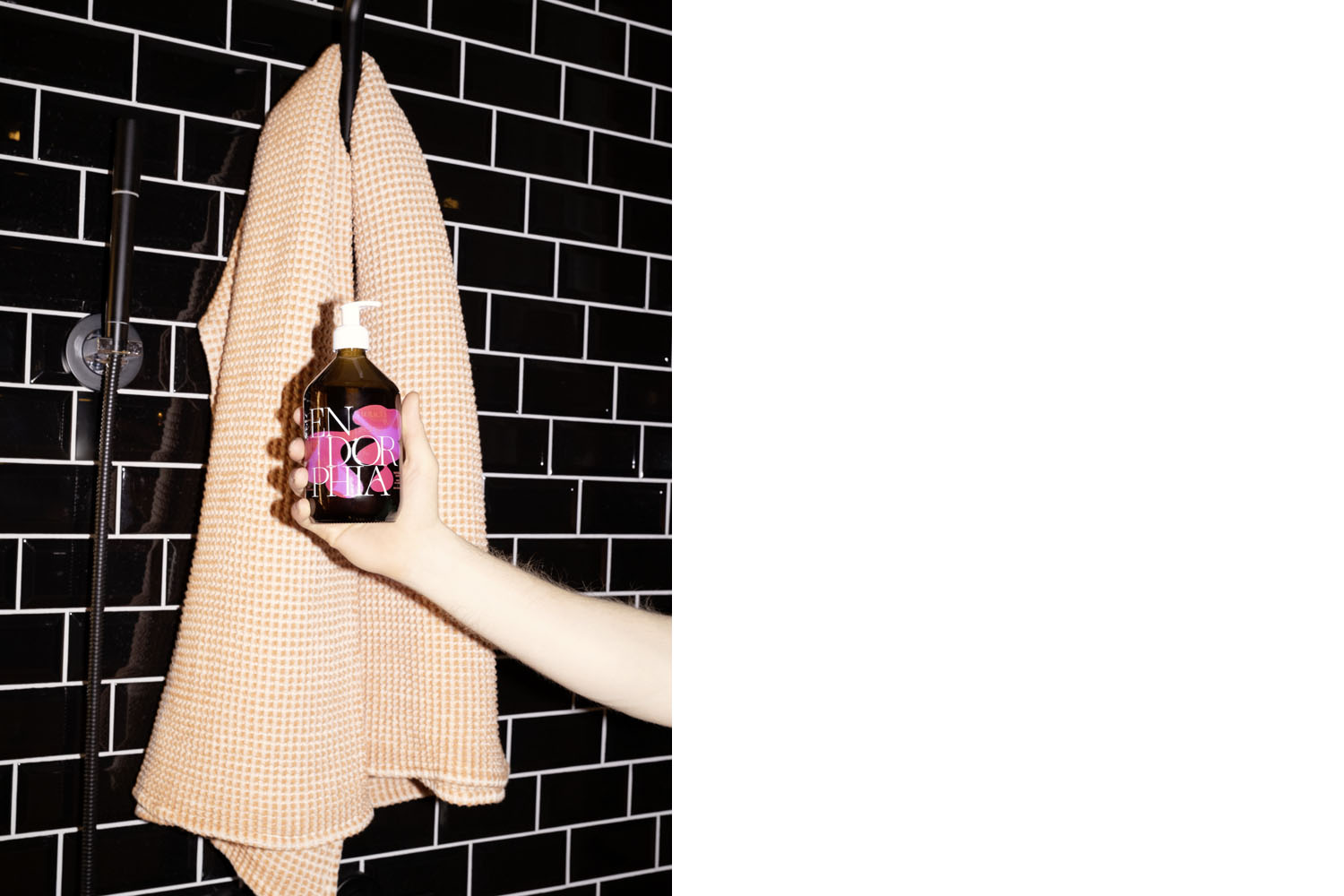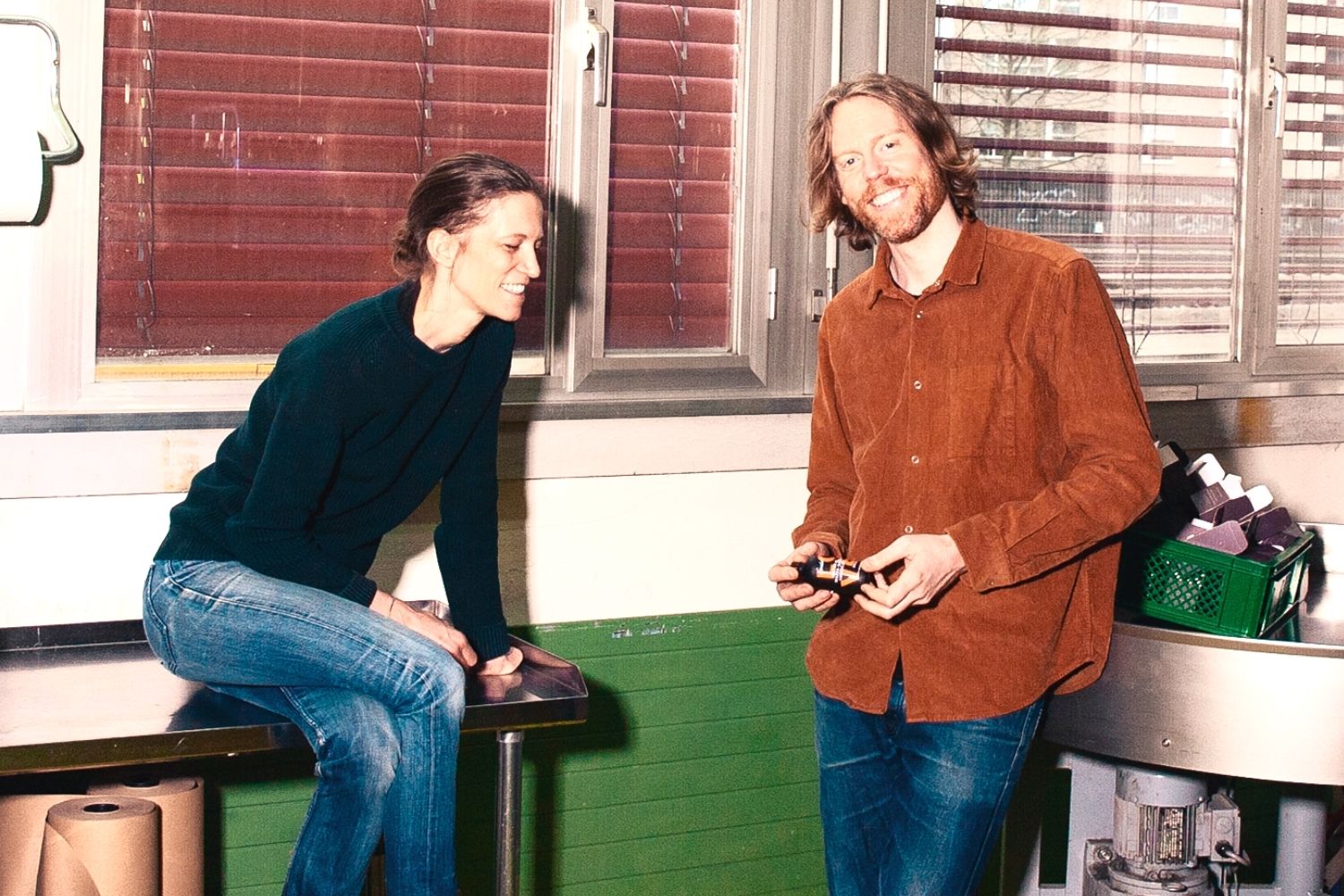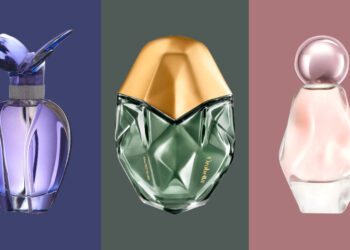Everyone needs soap. Perhaps this is the secret to the success of Hanna and Johan Olzon-Åkerström, whose company Soeder makes soap cool and hand washing a pleasure. A look behind the scenes of the company that transforms bathrooms into hipster spaces.
FACES: How did you manage to turn soap into a hip product?
Hanna & Johan Olzon-Åkerström: We didn’t start out with a soap factory, but with a conviction for well-made products. Before the soap, there was a whole range of different products with which we created a basis and thus a customer base and trust. We didn’t just come onto the market and want to sell our soap, but already had a network of friends and like-minded people who already knew about our home-made product. We had a good, high-quality product that spoke for itself. This is how our network has grown organically, mouth to mouth and by washing our hands. Soap in itself is not hip, we believe, but rethinking our own consumption is in keeping with the times.
Q: Soeder has been around since 2013. How did it all start back then?
H&JOA: We came up with the idea of soap in the first place because we were dissatisfied. We had been running a store in the center of Zurich for some time, where we sold sustainably produced consumer goods. Soap was a product that was doing well, but with every bottle that crossed the counter we thought: we can do better. Johan then spent a good six months learning how to make soap from books and YouTube videos, while Hanna developed the design. The first soaps were actually made on our stove in our apartment in Zurich. While the food for a baby and a toddler was being prepared on one plate, Johan was researching the right mixtures for our natural soap on the other. The first production site was then a garage in Zurich, and we sold our soaps for the first time at a Zurich Christmas market.
Q: What does your name Soeder actually mean?
H&JOA: On the one hand, Soeder is Swedish and means “south”. We came to Switzerland from Sweden years ago and are now real Zurich natives with excellent connections in the city and its creative scene. Soeder has come to mean much more. It stands for a soap family that turns existing conditions on their head. It stands for everyday products that want nothing less than to make the world a little bit better. And it stands for us as a couple and our team, with whom we tackle things together with a friendly smile, always true to the motto: we make things good.
Q: What have been the biggest hurdles since the company was founded?
H&JOA: Running a start-up means doing everything yourself, and that takes a lot of energy. Keeping your energy levels high at all times is one of the biggest hurdles. You can only do that if you firmly believe in what you are doing. The change from “do-it-yourselfer” to “leader” is special. We have a great team today and are practicing working on an equal footing. But you always have to question yourself and not forget the perspective from above if you want to lead well. Now we are about to move the factory, and this will be a logistical and planning hurdle that we have never experienced before. We are looking forward to it!
“Soap itself is not hip.”
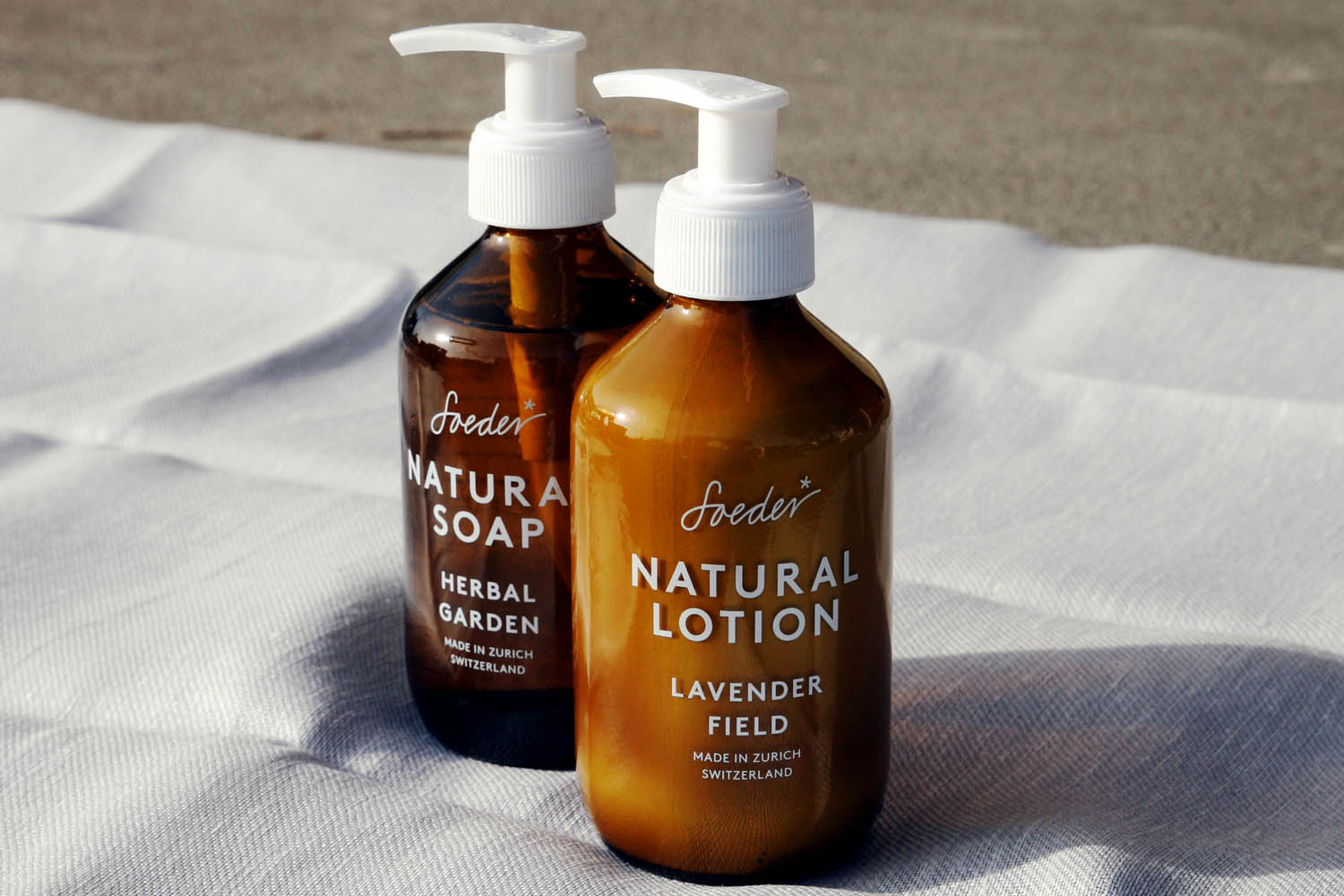
Q: Where and how are your soaps made?
H&JOA: Everything is produced in our own factory in the canton of Zurich. We work here ourselves and do everything on the product, from purchasing raw materials to production and shipping. But we also realize sales via our own channels and communication here. The raw materials processed in our factory also all come from natural raw materials.
Q: How do you convince consumers to buy one of your refillable soaps?
H&JOA: We are honest about what we do and are firmly convinced that today’s cosmetics market can be made insanely better than the usual standard. We approach our customers with an open and direct manner, which leads to conversations that help us move forward. We are never finished, but constantly reflect on ourselves, think about where we are today and try to do even better tomorrow. We ourselves are never finished with ourselves and our level of knowledge. There is so much to explore! For example, we were one of the first to offer refill options, and our customers really jumped at the chance.
Q : Are there any new materials you would like to work with?
H&JOA: We are working on new products and product segments that we will also produce in our factory. The latest is soap bar production, and fermentation offers completely new possibilities for our products.
Q : You now not only produce soaps, but also, for example, a lubricant in addition to textiles. How did this come about?
H&JOA: A soap alone does not make a product range, which is why we have a number of care products in our line. We talked to our neighbors at the PornyDays Festival about caring for nature. The result was a silicone-free lubricant. In future, we will focus on what we can produce ourselves in our factory.
Q: There are few natural perfumes due to the problematic shelf life. How do you manage to perfume your product accordingly?
H&JOA: It’s true that natural extracts don’t stick for as long as synthetic ones. They are not as aggressive in their fragrances, but more varied and richer. The fact that your hands don’t smell of the fragrance for hours on end when you use our soap is an advantage.
Q : You are always working with new brands and companies. Which of these soaps has sold best so far, and who would you like to see as a cooperation partner?
H&JOA: We’ve done a lot of good collabs, but mostly in very limited editions. It’s difficult to measure which one sold best. All of them sold out quickly. We are of course delighted that we have already entered the second round with certain friends, such as Club Zukunft and Schoenstaub. However, we are now increasingly making our way abroad and have a few great collabs in the pipeline, for example with the classic department store Bergdorf Goodman in New York.
Q: What are your most important values?
H&JOA: Honesty: We want to be transparent and direct in our exchanges within the team and with our environment. Friendship: Everyone is important and has a right to their place. It’s more fun when we can do things together, and respect and trust must guide us. Rebellion: We do not accept the status quo as the final state of affairs. Tomorrow everything can be different and even better. Wisdom: It is important to know what you are doing and what you stand for.
Q: What are you like as bosses?
H&JOA: We see ourselves more as coaches than bosses. We are bright and welcoming. It is important to us that the values of our company are understood and lived. However, everyone’s role is important. Our work is project-based, where everyone in the company can and is allowed to get involved. It is important to us that everyone can participate in the development.
Q: You are married and work together. Is this proximity more of a curse or a blessing?
H&JOA: We chose to work together very consciously. So that’s a blessing for us. We complement each other very well and are equal and unequal in the right things. We would never want to work in any other way than together.
Q: What do you argue about and how do you find a common solution?
H&JOA: Because we share the same vision and do so out of inner conviction, we always arrive at a joint solution. We don’t always agree on the exact route to our destination straight away, but we are both always clear about where we are going.
Q: What is your biggest daily challenge?
H&JOA: Getting the children in and out of bed on time.
“You should never consume more than you need.”
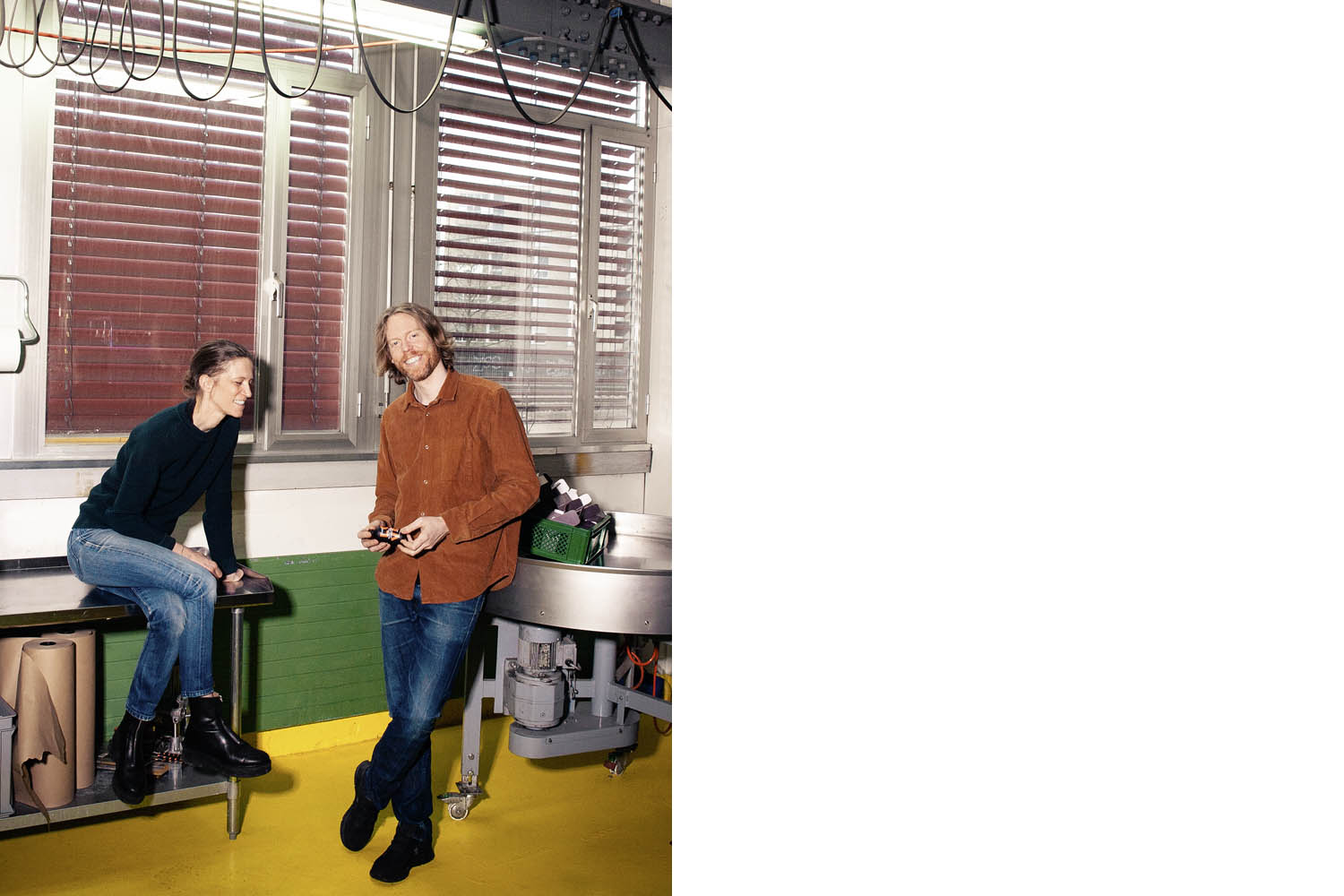
Q : Vegan food is available in every supermarket today, but natural products and veganism have still not become widespread in the cosmetics industry. Why is that?
H&JOA: Certain raw materials are very cheap, but often not vegan. Tallow, for example, is one such product. We use Swiss honey in certain products, which is of course not vegan. Why we do it anyway is the benefit that honey brings to the skin. However, development in this area is progressing, which we see as very positive.
Q: What is the biggest problem in making a product sustainable, natural and vegan?
H&JOA: The choice of raw materials is limited. Many technical raw materials in this area are still based on synthetic, palm oil or sulphate. Many good natural, sustainable raw materials are also very expensive. Of course, this means that the end products are expensive. This is the reason why many companies opt for conventional materials, which are cheaper.
Q: The consumer jungle is huge: what is the right way to consume today?
H&JOA: You should never consume more than you need. Your own needs are very personal. However, it is very difficult for consumers to decipher what is good and what is not. Fortunately, there are more and more tools to help consumers check ingredients.
Q: What are your favorite places in Zurich?
H&JOA: We feel very much at home in Zurich’s Kreis 4 district, where our first store is located. We also firmly believe in the development of Altstetten, where our new factory will be located.
Q : What do you miss about Zurich when you are in Sweden, and what is missing in Zurich that is available in Sweden?
H&JOA: Zurich is our home, and we go to Sweden on vacation. We love both.
Q: What does Zurich need?
H&JOA: Living urban production. We are part of Made In Zurich, which is very important to us. Our next factory location in Altstetten is an important step in the direction of more production in the city.
Q: What does everyone have to do to make the world a better place?
H&JOA: Just something. It doesn’t have to be the same for everyone, but everyone should find their own way. We are vegetarians, but it’s not something we would recommend to everyone. But it is our way. But what we firmly believe in is the measure of “enough”. We must avoid overconsumption.
Q: Why is our society failing?
H&JOA: A real understanding that resources are not infinite. The human footprint is still too high and we need to rethink together. It is also very important that we see and respect each other.
Q : What will the world look like in ten years’ time?
H&JOA: Nature is a limited resource, and what we take for granted today will no longer be the case in ten years’ time.
Q: Are you positive about the future, and if so, why?
H&JOA: Yes, research is making such fantastic progress, and if the new methods and materials are used, this can achieve great things. We firmly believe in what we can do as human beings. The understanding of what needs to be done is much more widespread today than it was ten years ago. In another ten years, we will be in a completely different place than we are today.
Q: What are you most worried about right now?
H&JOA: That we don’t manage to change the direction in which our world has been steered just before twelve. Or that the children don’t get enough sleep.
Q: What was the last time you had a good laugh?
H&JOA: We laugh a lot every day because we work with a great crew made up of lots of funny people. Unfortunately, the real stand-up comedian in the team, Moritz Schädler, has left the team to devote himself to his hobby. His performances are actually hilarious.
Q: When are you happiest?
H&JOA: When we realize that we have actually made a difference. On a small and large scale.
Q: What do your customers enjoy the most?
H&JOA: Honesty and friendliness. Constructive criticism and praise are good, but only the former really helps you move forward. When we experience creative and inspiring encounters, we feel a boost that gives us energy to carry on. Moving forward together is our only way.
